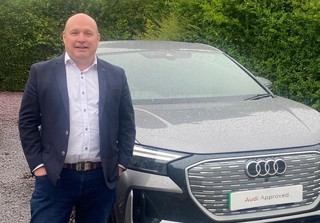The UK fleet industry has greeted yesterday's Budget by chancellor George Osborne with caution.
Industry bodies such as ACFO, the BVRLA and the FTA have welcomed the fuel duty freeze, but voiced concerns regarding ambiguity and changes to capital allowances.
BVRLA chief executive Gerry Keaney said: “While it may have been touted as pro enterprise and pro infrastructure, this Budget gives the rental and leasing industry plenty of cause for concern.”
“We welcome the decision to freeze fuel duty, VED rates for HGVs and the Road User Levy, as well as the announcement that Corporation Tax will be cut to 17% by 2021. Yet the Chancellor missed a number of opportunities to give the vehicle rental and leasing industry the shot in the arm it deserves,” Keaney commented.
ACFO chairman John Pryor was worried about future planning and the lack of company car tax figure release for 2020-21.
“ACFO is disappointed that the Chancellor has not published company car benefit-in-kind tax rates for 2020/21.
“In recent years, the Chancellor has enabled fleet operators and company car drivers to forward plan by providing tax rates five years in advance of implementation.
“That has now reduced to four years and means that fleet and drivers running cars into a fifth year are left in the dark as to their tax liability", he explained.
Although Osborne said benefit in kind tax incentives for low-emission vehicles would be reviewed, Pryor was pleased with comments stating that taxes would remain broadly based on emissions.
“ACFO is pleased that the Chancellor has confirmed his intention to retain carbon dioxide (CO2) emissions as the basis for company car benefit-in-kind tax from 2020/21. It has become a well-established system that is straight-forward to understand and implement.
“In respect of reform of the tax bands for ultra-low emission cars, ACFO will naturally collect members’ views and respond to the government’s consultation document when available.
“ACFO has always supported the adoption of ultra-low emission vehicles by fleets and given the increased corporate demand for such vehicles, will seek the implementation of a tax regime that further encourages adoption.”
The BVRLA, meanwhile, felt the Chancellor should have reversed the decision to retain the 3% diesel supplement.
“While the decision to retain the 3% diesel supplement for the next three years was announced in the 2015 Autumn Statement, it’s unacceptable that the Chancellor has not seen the error of his ways and done a U-turn in this Budget. This punitive tax on company car drivers penalises innocent people for decisions they have already made.”
Keaney said: “It’s pleasing to see the Chancellor extend 100% first year allowances for businesses purchasing ultra-low emission cars for a further three years until 2021, though yet again he has ignored our calls to make this benefit available for companies that lease their cars. This unfairly discriminates against SMEs who rely on lease arrangements to access new low-emission cars, and instead favours cash-rich businesses who can afford to purchase cars outright.”
Additional changes were announced relating to capital allowances which will affect businesses leasing new cars from April 2018 until 2021.
“It’s unsurprising that the Chancellor wants to reduce the main rate threshold for capital allowances for business cars from 130g/km CO2 to 110g/km in 2018, and we welcome the advance notice he has provided,” said BVRLA's Keaney.
“We still remain dissatisfied with the retention of the lease rental restriction on customers as this is effectively a double emissions tax. Leasing firms are restricted to claiming 8% of the writing down allowance, and customers can only claim 85% of the lease rental payment,” he added.
The BVRLA will respond to the Government’s discussion paper on the tax treatment of leases in due course.
The association also noted a reference in the Budget documentation about limiting the range of benefits of some salary sacrifice schemes. Keaney added: “The government says it intends to maintain the attractiveness of salary sacrifice schemes, but only mentions childcare, cycle purchase and pension schemes. We will have to wait for further announcements about cars provided under salary sacrifice schemes – but any changes would impact on the estimated £4,500 that HMRC receives in tax revenue per year from each salary sacrifice car.”
Pryor echoed Keaney's concerns, stating: “Many public and private sector organisations have already introduced car salary sacrifice schemes and ACFO is aware of many others that continue to consider their implementation.
“ACFO would advise companies to be aware of the government’s review announcement when investigating the introduction of salary sacrifice arrangements.”


















Login to comment
Comments
No comments have been made yet.